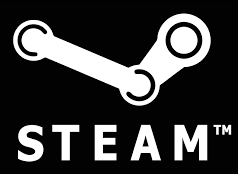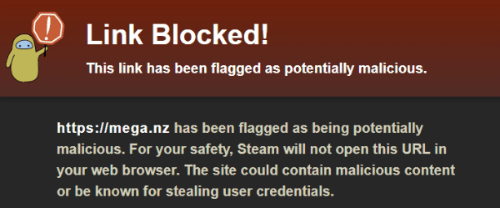Steam Censors MEGA.nz Links in Chats and Forum Posts
samedi 21 avril 2018 à 21:14 With more than 150 million registered accounts, Steam is much more than just a game distribution platform.
With more than 150 million registered accounts, Steam is much more than just a game distribution platform.
For many people, it’s also a social hangout and a communication channel.
Steam’s instant messaging tool, for example, is widely used for chats with friends. About games of course, but also to discuss lots of other stuff.
While Valve doesn’t mind people socializing on its platform, there are certain things the company doesn’t want Steam users to share. This includes links to the cloud hosting service Mega.
Users who’d like to show off some gaming footage, or even a collection of cat pictures they stored on Mega, are unable to do so. As it turns out, Steam actively censors these type of links from forum posts and chats.
In forum posts, these offending links are replaced by the text {LINK REMOVED} and private chats get the same treatment. Instead of the Mega link, people on the other end only get a mention that a link was removed.

While Mega operates as a regular company that offers cloud hosting services, Steam notes on their website that the website is “potentially malicious.”
“The site could contain malicious content or be known for stealing user credentials,” Steam’s link checker warns.

It’s unclear what malicious means in this context. Mega has never been flagged by Google’s Safe Browsing program, which is regarded as one of the industry standards for malware and other unwanted software.
What’s more likely is that Mega’s piracy stigma has something to do with the censoring. As it turns out, Steam also censors 4shared.com, as well as Pirate Bay’s former .se domain name.
Other “malicious sites” which get the same treatment are more game oriented, such as cheathappens.com and the CSGO Skin Screenshot site metjm.net. While it’s understandable some game developers don’t like these, malicious is a rather broad term in this regard.
Mega clearly refutes that they are doing anything wrong. Mega Chairman Stephen Hall tells TorrentFreak that the company swiftly removes any malicious content, once it receives an abuse notice.
“It is crazy for sites to block Mega links as we respond very quickly to disable any links that are reported as malware, generally much quicker than our competitors,” Hall says.
Valve did not immediately reply to our request for clarification so the precise reason for the link censoring remains unknown.
That said, when something’s censored the public tends to work around any restrictions. Mega links are still being shared on Steam, with a slightly altered URL. In addition, Mega’s backup domain Mega.co.nz still works fine too.
Source: TF, for the latest info on copyright, file-sharing, torrent sites and more. We also have VPN reviews, discounts, offers and coupons.


 As one of the leading CDN and DDoS protection services, Cloudflare is used by millions of websites across the globe.
As one of the leading CDN and DDoS protection services, Cloudflare is used by millions of websites across the globe.
 Dutch anti-piracy group BREIN has targeted operators and uploaders of pirate sites for more than a decade.
Dutch anti-piracy group BREIN has targeted operators and uploaders of pirate sites for more than a decade.